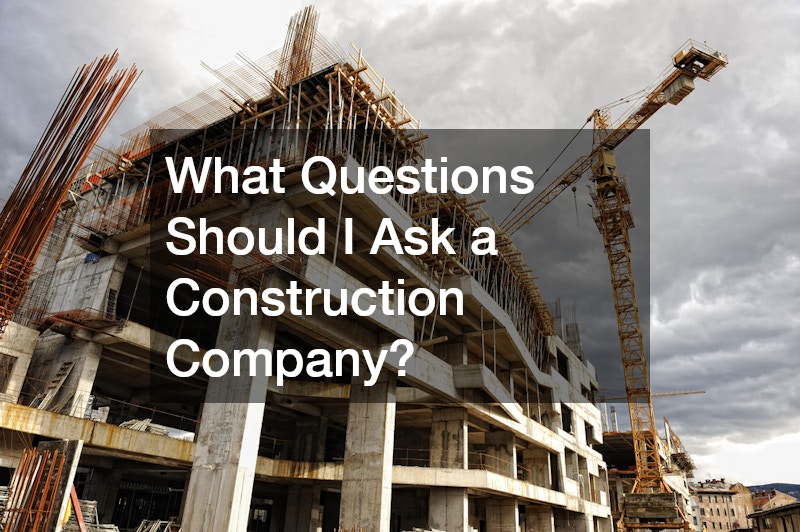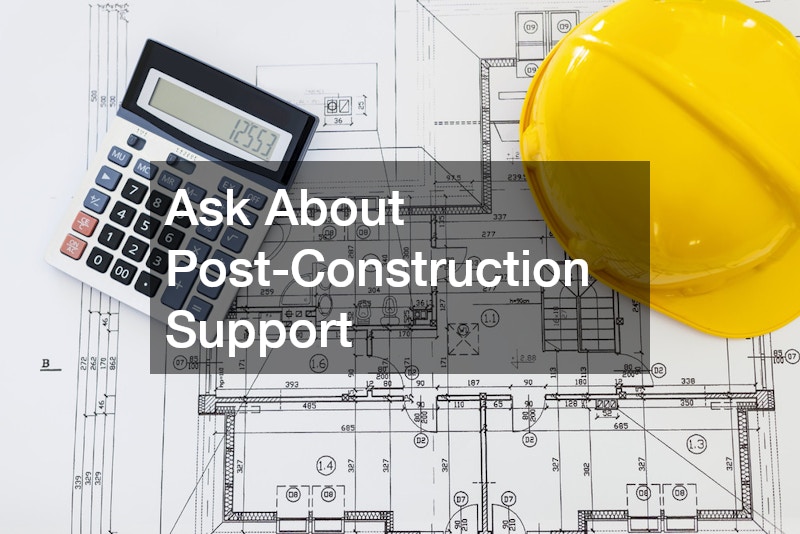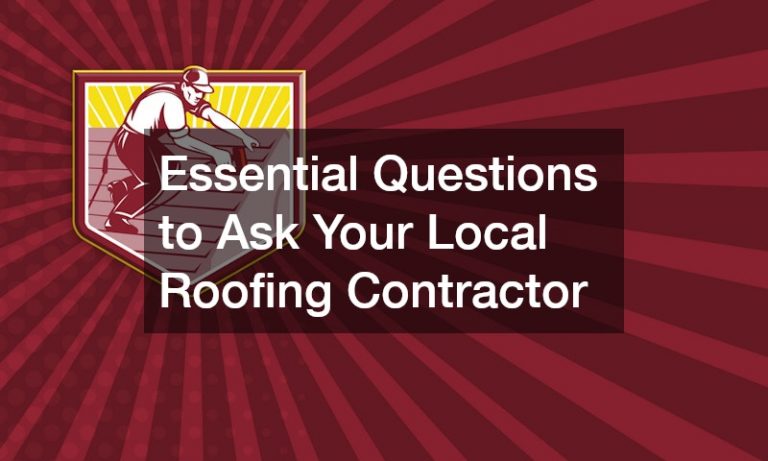

Hiring a construction company is a major step, whether you’re building a new home, renovating an office, or completing a large commercial project. The firm you choose will influence not just the quality of the final structure but also the efficiency, cost, and overall experience of the project. Asking the right questions before you commit helps you identify reliable professionals and avoid costly mistakes.
Are You Licensed, Bonded, and Insured?
One of the first questions to ask any construction company is whether they are properly licensed to operate in your area. Licensing indicates that they meet local regulatory requirements and adhere to industry standards.
Bonding offers financial protection if the contractor fails to complete the job or meet contractual obligations. Insurance—both liability and workers’ compensation—protects you from being financially responsible if someone is injured on-site or if property damage occurs. Always request proof and verify it with the issuing agency.
What Is Your Experience With Projects Like Mine?
Not all construction companies have the same strengths. Some may excel in residential builds, while others focus on commercial or industrial projects. Ask about similar projects they have completed, including their scope, size, and complexity. If you’re building a custom home, for example, you’ll want a company with a proven track record in that area.
Request photos or portfolios of completed work and ask if they can walk you through recent examples that match your project type.
Can You Provide References or Client Testimonials?
Speaking directly with past clients gives you an unfiltered perspective on the company’s reliability, workmanship, and communication style. Ask for at least three references and follow up with questions about the quality of the work, adherence to timelines, budget accuracy, and how the company handled challenges.
Online reviews can supplement your research, but direct conversations are often more revealing.
What Is the Project Timeline?
Time is a critical factor in any construction project. Ask the company for a projected start date, completion date, and any factors that could cause delays. Inquire about how they handle scheduling conflicts and whether they use a project manager to keep things on track.
Make sure the contract includes a realistic timeline and outlines how changes will be addressed.
How Do You Handle Permits and Inspections?
Most construction projects require permits, and many need to pass inspections at various stages. A reputable construction company will handle the permitting process for you and coordinate inspections to ensure compliance with building codes. Avoid any contractor who suggests bypassing these steps—it could lead to fines or legal issues down the road.
What Is Included in the Estimate?
A detailed written estimate helps you understand exactly what you’re paying for. It should cover labor, materials, equipment, permit fees, and any additional costs. Ask if the estimate is fixed or if it could change during the project.
If the quote is significantly lower than others you’ve received, find out why. It may indicate cheaper materials, less experienced labor, or an incomplete scope of work.
Who Will Be On-Site?
Clarify whether the construction company uses in-house crews or subcontractors. If subcontractors will be involved, ask how they’re selected and supervised. Having a consistent team on-site can help maintain quality and efficiency.
Find out if there will be a dedicated project manager or site supervisor you can communicate with directly.
How Do You Manage Changes or Unexpected Issues?
Construction projects often encounter changes—whether due to design modifications, unforeseen site conditions, or material shortages. Ask how change orders are handled, what approval process they use, and how they communicate cost and schedule impacts.
A clear process for managing changes reduces stress and prevents misunderstandings.
What Warranties or Guarantees Do You Offer?
Warranties protect you from defects in workmanship and materials. Ask about both manufacturer warranties for products used and the company’s own workmanship guarantee. Find out the duration of coverage and what is included or excluded.
Get all warranty details in writing before work begins.
How Will You Protect My Property and Ensure Safety?
Construction sites can be messy and hazardous. Ask what measures the company will take to protect landscaping, driveways, and existing structures during the build. Also, confirm their safety protocols for workers and visitors.
Companies that prioritize safety not only protect their crews but also reduce the risk of accidents and delays.
Do You Offer Post-Construction Support?
Even after the project is complete, issues can arise—like settling cracks or small defects.




